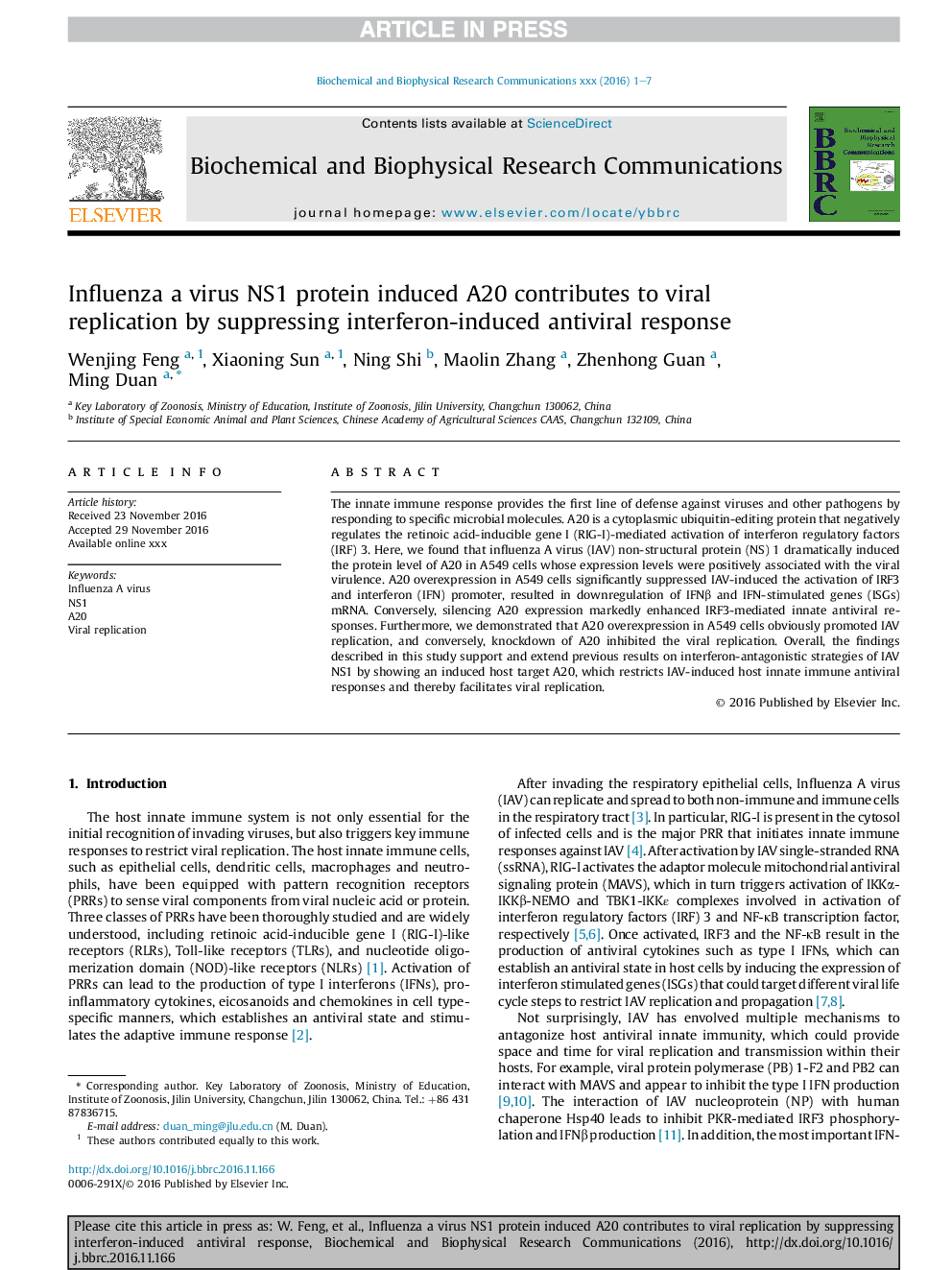| Article ID | Journal | Published Year | Pages | File Type |
|---|---|---|---|---|
| 5506300 | Biochemical and Biophysical Research Communications | 2017 | 7 Pages |
Abstract
The innate immune response provides the first line of defense against viruses and other pathogens by responding to specific microbial molecules. A20 is a cytoplasmic ubiquitin-editing protein that negatively regulates the retinoic acid-inducible gene I (RIG-I)-mediated activation of interferon regulatory factors (IRF) 3. Here, we found that influenza A virus (IAV) non-structural protein (NS) 1 dramatically induced the protein level of A20 in A549 cells whose expression levels were positively associated with the viral virulence. A20 overexpression in A549 cells significantly suppressed IAV-induced the activation of IRF3 and interferon (IFN) promoter, resulted in downregulation of IFNβ and IFN-stimulated genes (ISGs) mRNA. Conversely, silencing A20 expression markedly enhanced IRF3-mediated innate antiviral responses. Furthermore, we demonstrated that A20 overexpression in A549 cells obviously promoted IAV replication, and conversely, knockdown of A20 inhibited the viral replication. Overall, the findings described in this study support and extend previous results on interferon-antagonistic strategies of IAV NS1 by showing an induced host target A20, which restricts IAV-induced host innate immune antiviral responses and thereby facilitates viral replication.
Related Topics
Life Sciences
Biochemistry, Genetics and Molecular Biology
Biochemistry
Authors
Wenjing Feng, Xiaoning Sun, Ning Shi, Maolin Zhang, Zhenhong Guan, Ming Duan,
